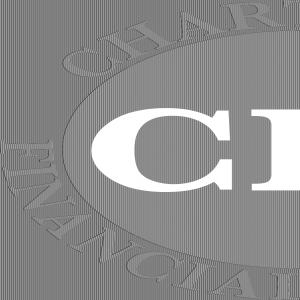 If you are hoping to gain an edge in the world of finance to stand out in today’s increasingly competitive global business marketplace, then you should become a Chartered Financial Analyst (CFA) to have the highest credentials needed for career advancement. Often considered the gold standard of excellence within the investment management field, the CFA designation is only awarded to individuals who have the most in-depth knowledge and experience within the investment industry. According to the Bureau of Labor Statistics, as employment of financial analysts continues to grow much faster than the average of all occupations by 16%, you can unlock promising job prospects and improve your chances of advancement as a CFA. Read on to discover a guide on how you can become a Chartered Financial Analyst (CFA) in just three steps.
If you are hoping to gain an edge in the world of finance to stand out in today’s increasingly competitive global business marketplace, then you should become a Chartered Financial Analyst (CFA) to have the highest credentials needed for career advancement. Often considered the gold standard of excellence within the investment management field, the CFA designation is only awarded to individuals who have the most in-depth knowledge and experience within the investment industry. According to the Bureau of Labor Statistics, as employment of financial analysts continues to grow much faster than the average of all occupations by 16%, you can unlock promising job prospects and improve your chances of advancement as a CFA. Read on to discover a guide on how you can become a Chartered Financial Analyst (CFA) in just three steps.
Receive an Accredited Bachelor’s Degree
In order to get on the right pathway towards becoming a CFA, you must build a solid foundational knowledge by achieving at least a bachelor’s degree from an accredited institution. While most positions for financial analysts require a bachelor’s degree, your undergraduate major can be in accounting, finance, economics, statistics, business, mathematics, engineering, or any other program of study that suits your career goals. Regardless of your chosen major, make sure you fill up on courses related to making investments, such as investment analysis, risk management, bond valuation, and options pricing.
Obtain at Least Four Years of Professional Experience
Although participating in an internship can do wonders at starting your specialization in a specific investment field while still pursuing your baccalaureate degree, you will need to obtain at least four years of professional experience in financial analysis after graduation to become a CFA. Qualified work experience involves evaluating or applying financial, economic, and/or statistical data to any part of the decision-making process involving investments. For each full-time entry on your resume, at least 50 percent of your time should be spent directly on producing a work product that informs or adds value to the investing process. According to the CFA Institute, managing your own or your family’s investments does not qualify as work experience without proper compensation.
Successfully Complete Three CFA Exams
Once you have become a regular member of the CFA Institute, you will need to successfully complete a total of three examinations at three different levels of expertise to become a Chartered Financial Analyst (CFA). At each level, the exams are designed to encompass the essential body of knowledge that is needed for success in investment professions. As grueling exams that only 40 to 65 percent of candidates are able to pass, the CFA Institute estimates that you will need to spend at least six months preparing for each six-hour exam before moving onto the next level. In most cases, successful candidates need an average of four years to complete the entire CFA program before received the professional charter.
Related Resource: Become a Stockbroker
Overall, if you do not want to go the traditional route of earning a Master of Business Administration to earn more advanced positions in the financial industry, then pursuing the CFA designation can provide a complementary training deeply specialized in 10 topics related to investments. When you make the economical decision to become a Chartered Financial Analyst, you can normally get through the four-year certification program by spending less than $3,000, which is often the price of a single course in pursuing an MBA.
 Follow
Follow